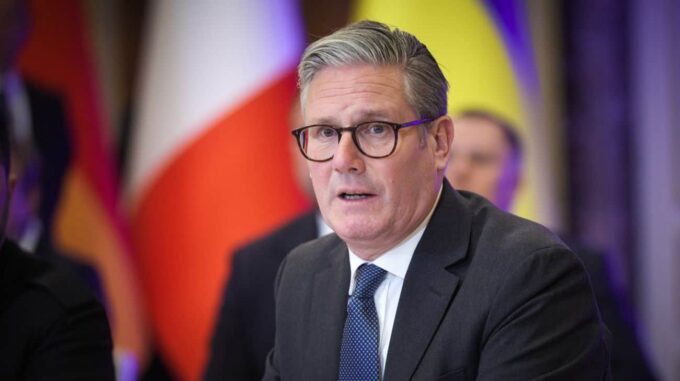France and the United Kingdom are still in the process of defining their positions regarding the deployment of a possible contingent in Ukraine after the war ends

Even at this moment, they have not reached specific arrangements concerning the number, composition, or locations of Western troops. This was directly communicated by representatives of both countries during a recent meeting with journalists in Kyiv, which took place on the sidelines of the "Decisive coalition" summit gathering leaders from several Western states. According to French President Emmanuel Macron, the discussion process is still actively ongoing, and it is not yet possible to speak about a concrete final plan. "We are holding discussions with all our partners led by France and Britain. Can I today announce any results? No. We are working on various scenarios, and our decision largely depends on how Russia responds. Once we receive this answer, we will be able to move forward and develop the most effective proposal," stated the French leader. In turn, British Prime Minister Rishi Sunak confirmed that the issue of possible deployment of forces at sea, in the air, and on land has not been definitively decided due to the lack of an end to hostilities and a ceasefire regime. "The question of the contingent across all three domains remains open, as the situation is incredibly fluid and depends on the further development of events on the battlefield," he noted. However, Sunak emphasized that the role of Western military forces in future peace processes is important and necessary, as without such presence, achieving a long-lasting and stable peace will be very difficult. "A contactless contingent is not just an additional element but a key component of the agreements. Without it, Putin’s attempts to violate even a signed peace could increase significantly. There have been precedents in history where agreements were not fulfilled due to the ignoring of such guarantees," Sunak stressed. He added that their main goal is a long and genuine peace, and short-term "ceasefires" do not rule out the possibility of future conflicts. Both politicians reaffirmed that the Western contingent is not the only guarantee of Ukraine’s security but merely one of several components of the security system. According to Macron, at the first level of protection should stand the Ukrainian army itself — the main defensive shield. The second level involves deterring potential offensives and, if necessary, the presence of Western troops. "We need to work on strengthening the Ukrainian army so that it becomes a deterrent capable of independently defending the state," the French president underscored. Confirming this idea, Sunak noted that the security strategy should be based on a concept of multi-layered defense, where each level plays its role in protecting Ukraine from potential external threats. He emphasized that without support, strengthening, and equipping the Ukrainian army, even a strong Western contingent would not be able to sustain the aggressor for long. Prior to these discussions, the results of the recent "Decisive coalition" summit held on May 10 in Kyiv are known. Participants agreed to step up sanctions against Russia if it refuses to agree to a ceasefire. In particular, the European Union and the United States announced intentions to tighten sanctions if Moscow attempts to ignore peace agreements. At the same time, according to Sunak, Western countries are prepared to continue exerting pressure on Moscow until Russia agrees to a sustainable peace. In this context, one of the key points of tension remains the issue of security guarantees for Ukraine. President Volodymyr Zelensky opposed the idea of creating a demilitarized zone along the contact line with Russia, based on proposals by former Canadian Foreign Minister Iggy Kellogg, emphasizing that without active defense and military support for border protection, the country will remain at greater risk. This serves as a signal to the international community that ensuring Ukraine’s stability and security must remain a top priority in any agreements. Thus, the question of the role and composition of the Western contingent in future Ukrainian security arrangements remains open and faces considerations of unprecedented challenges confronting the international community in this war. Final decisions, as before, depend not only on political will but also on the evolving military situation, diplomatic negotiations, and the ability of all parties to find common compromises to ensure long-term peace and stability in the region.

